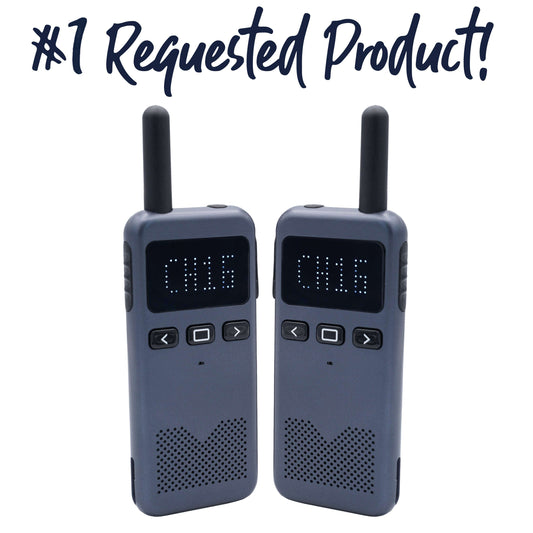
What in the World Is Happening to Our Privacy?

Surfing the web in the peace and quiet of your home is entertaining and can be quite fun. But the same Internet that brings us instant access to nearly unlimited information also enables people to spy on us.
If the privacy scandals of 2019 have taught us anything, they've taught us the importance of keeping our personal information safe.
Even Facebook admitted that 18 percent of its spyware app users were teens, not the "less than 5 percent" it had claimed.
They then launched an app called Study, which pays people to harvest their data, including which apps they use.
Facial recognition has gone from unlocking devices to a surveillance tool. Hackers stole traveler photos from the U.S. Customs and Border Patrol in 2019.
Several phone companies gave access to their customers' location data. So far, a class action lawsuit against them has been stalled.
Californians Fight Back
If you live in California, you've probably been getting more emails than usual lately. If you live somewhere else, your inbox may become more crowded soon.
The toughest privacy law in the U.S. went into effect on January 1 in the Golden State. It's called the California Consumer Privacy Act (CCPA).
Those extra emails coming to Californians are from a wide variety of groups. They are announcing updates to their terms of service. Especially their privacy policies.
What this means is that people in California can now find out what personal information is being collected about them.
Complicated and Confusing
The CCPA allows consumers to opt out of the sale of their personal information. And these consumers will be able to sue companies if they fail to implement reasonable security practices.
While that sounds good, there's a catch. These groups can still collect your data. Including where you go and when, what you get online, your emails and the photos you've taken.
The difference is that now these groups must tell you what they're collecting when you ask. And they have to delete it if you request that.
Another catch is that some groups can deny your request. If they can show that the information is required to complete a financial transaction. Or protect against fraud.
Big Companies Should Be Wary
Confused yet? If not, you will be soon. Groups can't legally give a Californian's data anymore if they're told not to.
But if they do it anyway, consumers are not allowed to file a lawsuit. Unless, that is, a data breach occurs that exposes one's personal information. Such as a Social Security number.
The CCPA went into effect on January 1. But the state's attorney general won't even begin to enforce it until July 1.
The budget is limited. So, the state will probably only go after big companies involving big data breaches.
Activists Seek Federal Law
Large companies won't take this new law lying down. There's too much money to be made by selling personal data.
As an example, Facebook earned $55 billion – that's "billion" with a "b" – in 2018 by providing advertisers access to users' information.
Entire industry groups have been working on softening this new law for the past year. You can expect to see lawsuits from them soon.
Privacy activists see this law as a step in the right direction. But the real goal is a tougher federal law.
Mary Stone Ross is one of those activists. She said, "So they're collecting and selling presence of children in household; your religion; if you're moving or expecting a baby. This is something the CCPA will expose."
Encryption Is No Promise
What did we learn about privacy in 2019? For one, we discovered that security by encryption does not ensure your information is protected.
WhatsApp is known for its end-to-end security. But hackers were able to install spyware through a missed WhatsApp call.
We also discovered that the companies most vocal about the privacy they have tend to be the biggest privacy offenders.
Apple and Amazon preach about privacy. But both made headlines in 2019 for employing staff to listen to digital voice assistant recordings. They captured people's personal conversations, including confidential medical information.
Privacy Can't Be Assumed Anymore
One thing has become very clear as technology becomes more advanced. If we want privacy, we're going to have to make it a top priority.
We all need to be extremely careful about what personal information we put out there.
And we have to keep a close eye on all of our accounts. Especially financial accounts. So that we can immediately report any suspicious activity.
If privacy is important to you, you'll have to make sure companies know about it. And even that won't help if you don't diligently monitor the situation.
Featured Products
- Regular price
- $699.95
- Regular price
-
- Sale price
- $699.95
- Unit price
- per
- Regular price
- $2,999.95
- Regular price
-
- Sale price
- $2,999.95
- Unit price
- per
- Regular price
- From $29.95
- Regular price
-
- Sale price
- From $29.95
- Unit price
- per
- Regular price
- From $29.95
- Regular price
-
- Sale price
- From $29.95
- Unit price
- per
- Regular price
- $2,499.95
- Regular price
-
- Sale price
- $2,499.95
- Unit price
- per
- Regular price
- $499.95
- Regular price
-
- Sale price
- $499.95
- Unit price
- per
- Regular price
- $999.95
- Regular price
-
- Sale price
- $999.95
- Unit price
- per
- Regular price
- From $29.95
- Regular price
-
- Sale price
- From $29.95
- Unit price
- per
- Regular price
- $2,999.95
- Regular price
-
- Sale price
- $2,999.95
- Unit price
- per
- Regular price
- From $2,796.95
- Regular price
-
$8,390.95 - Sale price
- From $2,796.95
- Unit price
- per
- Regular price
- $4,999.95
- Regular price
-
- Sale price
- $4,999.95
- Unit price
- per
- Regular price
- From $129.95
- Regular price
-
$259.95 - Sale price
- From $129.95
- Unit price
- per
- Regular price
- $847.95
- Regular price
-
$897.95 - Sale price
- $847.95
- Unit price
- per
- Regular price
- $1,999.95
- Regular price
-
- Sale price
- $1,999.95
- Unit price
- per
- Regular price
- $279.95
- Regular price
-
- Sale price
- $279.95
- Unit price
- per
- Regular price
- From $69.95
- Regular price
-
- Sale price
- From $69.95
- Unit price
- per
- Regular price
- $29.95
- Regular price
-
- Sale price
- $29.95
- Unit price
- per
- Regular price
- $849.95
- Regular price
-
- Sale price
- $849.95
- Unit price
- per
- Regular price
- $249.95
- Regular price
-
- Sale price
- $249.95
- Unit price
- per
- Regular price
- $199.95
- Regular price
-
- Sale price
- $199.95
- Unit price
- per
- Regular price
- $129.95
- Regular price
-
- Sale price
- $129.95
- Unit price
- per
- Regular price
- $114.95
- Regular price
-
- Sale price
- $114.95
- Unit price
- per
- Regular price
- $69.90
- Regular price
-
- Sale price
- $69.90
- Unit price
- per
- Regular price
- $19.95
- Regular price
-
- Sale price
- $19.95
- Unit price
- per
- Regular price
- $3,499.95
- Regular price
-
- Sale price
- $3,499.95
- Unit price
- per

























Comments
Ken Herrmann - January 30, 2020
As a continuing Privacy story – First consider the 2001 Supreme Court decision Kyllo v U.S. that ruled that Police use of thermal imaging cameras to observe energy use heat signatures for the finding of possible drug grow operations in homes, was a violation of the Fourth Amendment restrictions on Search and Seizure.
Next consider the 2018 Carpenter v U.S. ruling that tracking of individuals movements by using cell tower GPS tracking data also violated the Fourth Amendment to which point Chief Justice Roberts wrote “ As technology has enhanced the Governments’ capacity to encroach upon areas normally guarded from inquisitive eyes, this court has sought to “assure[ ] preservation of that degree of privacy against government that existed when the Fourth Amendment was adopted”(Kyllo v US 2001).
These were good decisions.
Finally realize that the Supervisory Control and Data Acquisition (SCADA) utility metering devices, commonly called “smart” or “advanced” meters, that have recently (less than 10 years) been added to our homes – at times coerced or forcibly but never with full disclosure – were specifically designed to turn the energy use patterns, and therefore knowledge of what you do in your homes, into DATA that can be sold to anyone. This Data is not secure. In 2018 the North American Electric Reliability Corporation (NERC) fined a major west coast utility $2.7 million after a third party contractor failed to secure personal utility use Data, and protect the control systems of the energy grid, for a period of about 70 days.
There was nothing wrong with the Analog metering used for near 100 years, it was safe, secure and dependable, it just did not produce the income that digital, and broadcast, metering could.
Both public and private utility corporations, utilizing their political power, have walked around our Fourth and Fourteenth Amendments for the profit and control of our private actions and spaces.
The Naperville Smart Meter Awareness group sued to block “smart” metering(NSMA v Naperville) but the Seventh Circuit Court of Appeals, while agreeing that the Fourth Amendment was violated by the unwarranted search through “smart” metering, the search was allowed due to “significant government interests” (a Fourteenth Amendment violation).
Funding and support to follow through to the Supreme Court – against utility industry pressure – has been difficult and this highlights the attack on our Privacy from all directions, even from those sworn to support and defend our Constitutional Rights. (liberals in the Seventh Circuit Court?)
Our Privacy is under attack and we are often led to believe that new laws will fix the problem, but often the holes, or exceptions, within these laws just make things more complicated (as in California).
Lets get back to “shall not be violated” – period.
There is still some distance to go, but we need more Conservative (Constitutional) judges on the bench. Thank you Mr Trump and all those fighting to retain our Privacy.